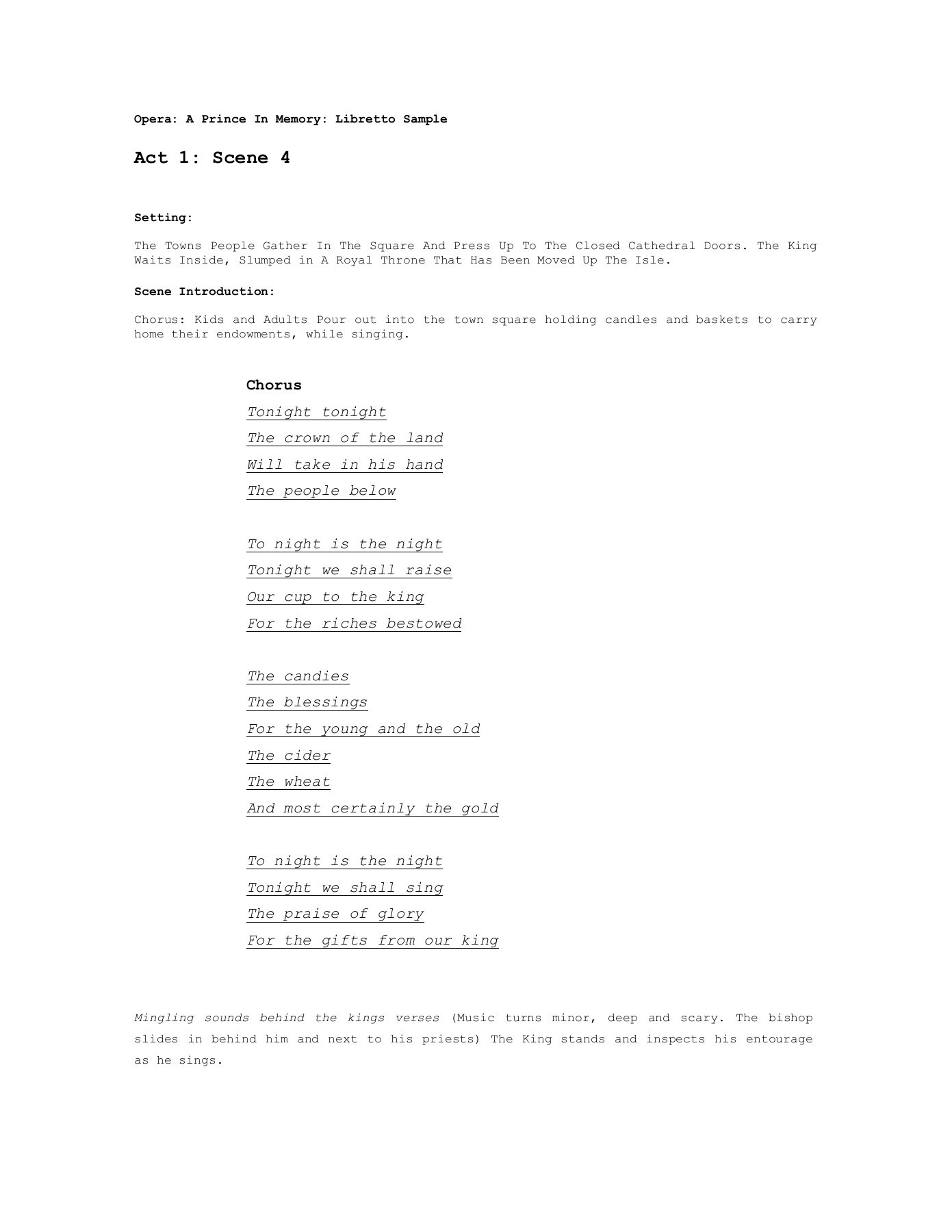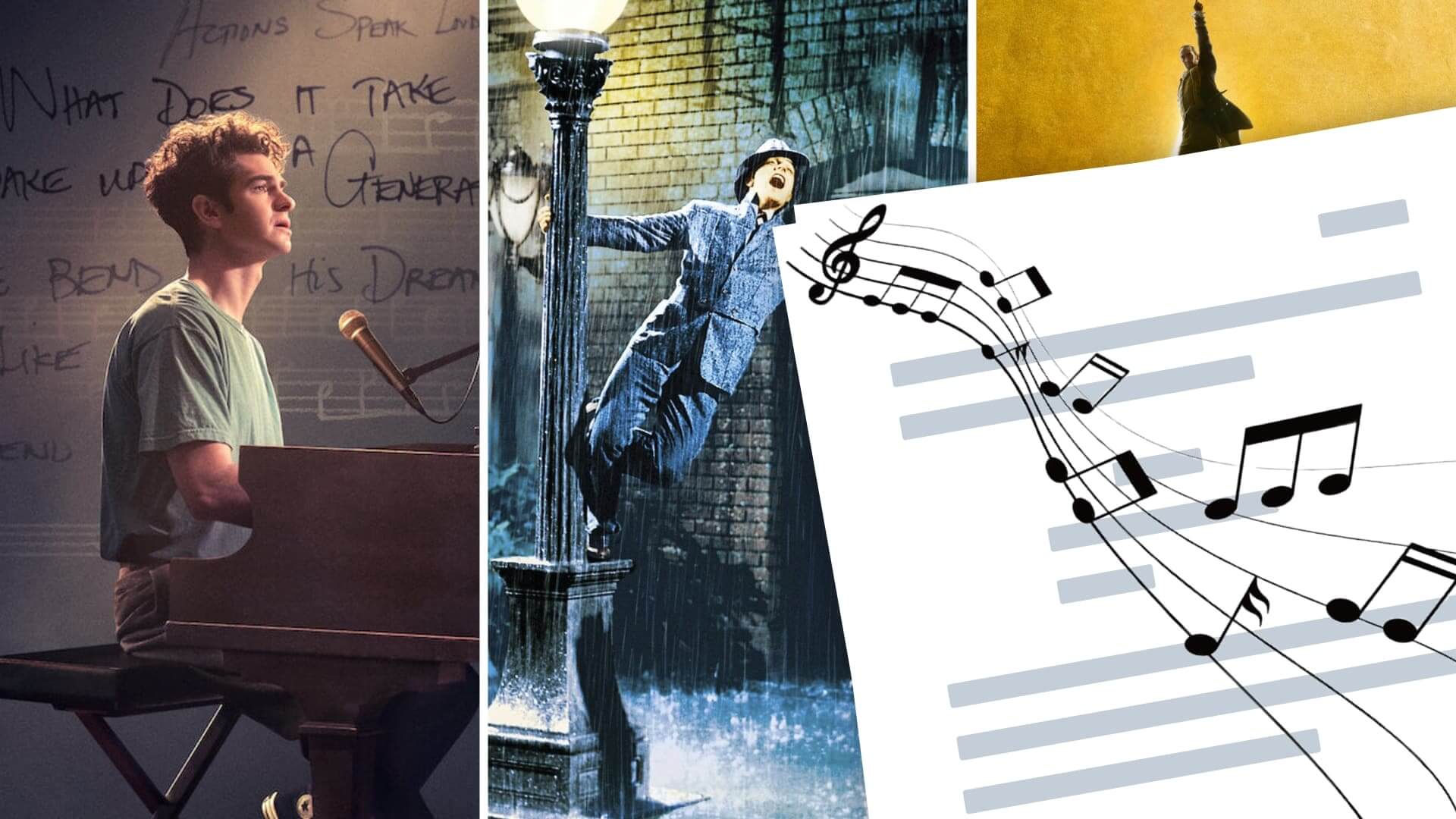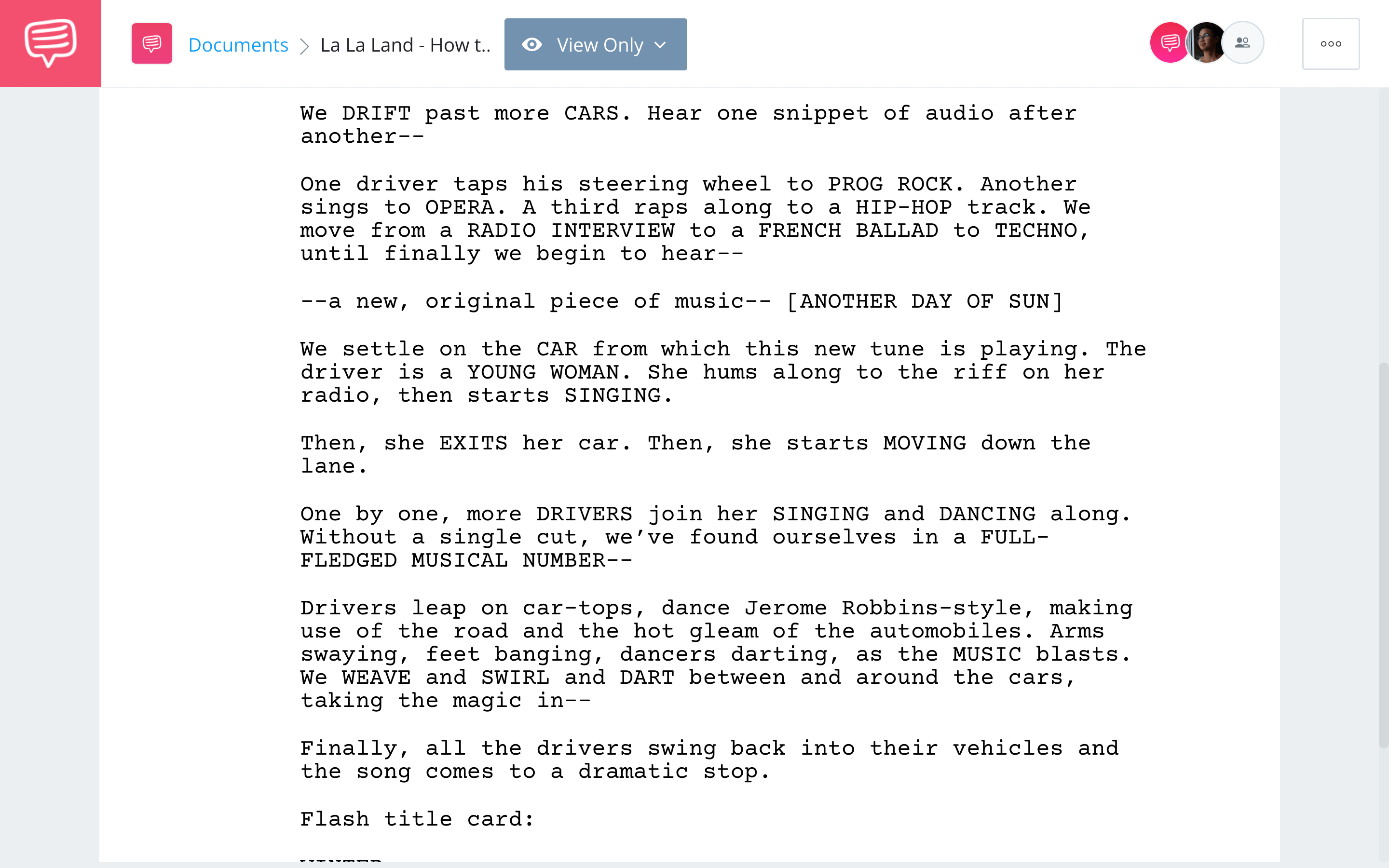Musicals can be incredibly difficult to write. Why? Because they require a working knowledge of scriptwriting and librettos. Don’t be intimidated though: musicals aren’t impossible to write. We’re going to show you how to write a musical by breaking down some musical scripts. We’ll analyze how professional musical writers combine song, dance, and dialogue in theater and film. By the end, you’ll have everything you need to write your very own.
Watch: Anatomy of a Screenplay — Ultimate Guide
Typical Structure of a Musical
Foundations of writing a musical
Before we analyze how to write a musical, perhaps we should remind ourselves of the challenges involved. Musicals are a niche genre of film/theater. They’re aimed at people who a) love music b) love narrative stories and c) love the combination of music and narrative stories.
In reality, points a and b really don’t matter – it’s the combination of music and narrative that makes musicals unique.
Writing a musical isn’t like writing a song or a narrative story because you can’t tell yourself – pardon my Robert De Niro insertion – this is this. It’s not a song or a narrative, it’s a song and a narrative. For most people, that combination is tricky to pull off.
So how do the best do it? Let’s listen to Hamilton writer Lin-Manuel Miranda explain how to write a musical.
Musical Writing • Lin-Manuel Miranda’s Advice on How to Write Musical
Miranda’s advice is certainly true: you have to tell your story – even if it interferes with party plans. But isn’t that true with screenwriting too? Yes, it certainly is; the difference with Hamilton is that Miranda had to gestate on the research of Alexander Hamilton and turn it into song and dance.
Literalism is one thing, adaptation is another. Now that we’ve looked at the unique challenges of writing a musical, let’s analyze how it’s done.
How to Write a Musical Script Format
How to write a musical screenplay
Musical screenplays are some of the most loved and loathed scripts in Hollywood. There are great ones, such as Damien Chazelle’s La La Land – and there are poor ones, such as Cats. In order to understand what makes a great musical script a great musical script, we have to start with the basics.
NARRATIVE
Musicals are not immune to the need for narrative structure. Every story needs the following things:
These things are just the foundation of narrative stories. Consider researching topics like subtext, theme, and denouement to add needed narrative depth to your story. And when in doubt, consult our full glossary of literary devices.
FORMATTING
Musicals are usually written in two parts: the script and the libretto. The script contains all of the structural tenets we talked about earlier whereas the libretto contains the “musical text.”
The libretto is often referred to as “the book” of a musical.
For more on screenplay format, check out our article on how to write a movie script like the professionals.
ANALYSIS
Now that we’ve looked at some of the narrative requirements involved in formatting a musical script, let’s analyze an actual musical screenplay to see how it should all come together.
We imported the La La Land screenplay into StudioBinder’s screenwriting software to see what Damien Chazelle’s Oscar-nominated script came together.
How to Write a Musical Screenplay • La La Land Screenplay
In La La Land, screenwriter Damien Chazelle blends the line between script and libretto. That’s because as he was writing the script, composer/musician extraordinaire Justin Horowitz was writing the melodies and musical numbers. In an interview with Creative Screenwriting, Chazelle said:
“I had a very close working relationship with Justin, so as soon as I was writing scenes, he was writing melodies and sending me piano demos. I’d then play them on a loop while writing scenes. So we were sending material back and forth, and it was already this very collaborative dialogue. It felt very natural.”
— Damien Chazelle
I bring this up to say that you don’t need to be a composer and screenwriter to write a musical screenplay. You have to have working knowledge of musical composition and screenplay format, but you don’t have to be a master of both. Take a note from Chazelle and Horowitz and consider collaborating with others to bring out each other’s strengths.
Creating a Musical
How to write a musical play
In some ways, musical stage plays and musical screenplays are incredibly similar. In other ways, they’re incredibly different. Let’s break down what makes them similar first. Both musical stage plays and musical screenplays rely on story beats and the typical “structure of a musical” we outlined earlier.
But whereas musical screenplays tend to blend the script with the music book, musical stage plays really emphasize the difference between the two documents. The book, or libretto, often (not always) contains the actual sheet music used to produce the music. Sometimes it contains the lyrics too. If not, the lyrics are written into the script in italics.
Here’s an example of a musical stage play example that shows how music lyrics should be written into the script:

How to Write a Musical Script Format • Musical Play Examples
The writing of music lyrics into scripts isn’t exclusive to stage plays, it’s sometimes used in screenplays too. If you want to use lyrics in your script, consider writing them in the dialogue section in italics.
And remember: you don’t have to format your musical perfectly on the first draft. In the end, you’ll probably have two dedicated documents; one for the script and one for the music.
Up Next
How to Schedule a Musical
Writing a script and libretto is just the first step in the process of making a musical. After your script and libretto are complete, you’re going to need to cross all the legal T's and dot all the logistical I's. In our next article, we’ll show you how to ensure your musical production is a success, with examples from Pitch Perfect, Mamma Mia, and more.

